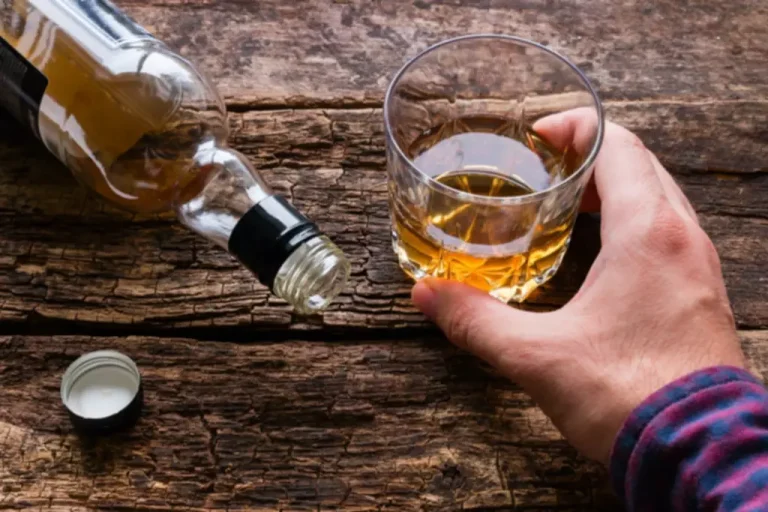Below are some of the factors you or your loved ones may want to consider before selecting an addiction treatment program in New York City, NY. There are dozens of New York City drug rehabs, many of which feature top credentials, offer a range of treatment services, and accept multiple different health insurance options. By Sarah Bence, OTR/LBence is an occupational therapist with a range of work experience in mental healthcare settings. Behavioral health treatment for alcohol problems is often (but not always) covered by insurance. In the United States, most states have low-cost or free rehabilitation programs for those who are uninsured.
- Moderate to heavy drinkers can also benefit from medical supervision in the acute withdrawal stage.
- If you need alcohol for your body to feel normal, then you likely need help.
- NYC Addiction Resources offers multiple levels of care for addiction recovery.
- You have lots of options, including 12-step programs, private therapy, and group counseling.
- In general, the course of alcohol withdrawal is highly variable and somewhat unpredictable.
International Patients
When a person with significant levels of physical alcohol dependence decides to quit drinking, medical supervision is critical to ensuring their safety and comfort. Alcohol’s withdrawal symptoms can include extremely unpleasant and/or life-threatening side effects such as agitation and seizures, which may require pharmacologic intervention to safely manage. For many people struggling with an alcohol use disorder (AUD) or whom have otherwise developed significant alcohol dependence as a result of chronic heavy drinking, quitting can be a challenge. In addition to the difficulty of changing often longstanding, compulsive patterns of alcohol use, the detox period may also give rise to unpleasant withdrawal symptoms and severe health risks. Alcohol withdrawal (alcohol withdrawal syndrome) is a range of symptoms that can happen if you stop or significantly reduce alcohol intake after long-term use. The best addiction treatment centers in NYC may offer a range of evidence-based treatment services including medication-assisted treatment (MAT), medical detoxification, and behavioral therapy.
24 Hours
A doctor or other treatment professional may evaluate for the above factors prior to making a recommendation for the level of detox care and detox timeline needed to keep a person safe and comfortable. fun group activities for substance abuse treatment If your provider suspects that you have a problem with alcohol, you may be referred to a mental health provider. Alcohol withdrawal can range from very mild symptoms to a severe form, known as delirium tremens. The helpline at AddictionResource.net is available 24/7 to discuss the treatment needs of yourself or a loved one. This helpline is answered by Legacy Healing Center, an addiction treatment provider with treatment facilities in California, Florida, Ohio, and New Jersey.
Partial hospitalization or day treatment is where you live at home but you go for treatment at a hospital or clinic at least 5 days a week. Recently, with COVID-19 precautions, many programs offer programs via duloxetine withdrawal timeline telehealth. It can be an alternative to inpatient or residential treatment or a step-down from one of those programs. That often includes medicine to help ease symptoms as well as care for medical and mental health conditions. Some people with AUD become dependent on alcohol and have withdrawal symptoms when they suddenly stop drinking. The effects of withdrawal on your body and mind can be uncomfortable and dangerous.
Your symptoms may last a week or more, typically hitting their worst within hours. You’re more likely to stick with a detox program when you have lots of help. Following successful completion of detox, an inpatient or outpatient rehabilitation program may be recommended to allow further work toward recovery and relapse prevention. Take our free, 5-minute alcohol misuse self-assessment below if you think you or someone you love might be struggling with an alcohol use disorder (AUD).
Medications to Ease Withdrawal Symptoms
There are several non-12-step rehab centers in New York for people who want to avoid the role of spirituality in their recovery plan. Yes, people who are using government-run insurance programs such as Medicare or New York Medicaid for addiction treatment will likely have the entire cost of their program covered. A person can find treatment for alcohol abuse and addictions to opioids, prescription drugs, illicit drugs, and more in New York City, NY.
Treatment may involve a brief intervention, individual or group counseling, an outpatient program, or a residential inpatient stay. Working to stop alcohol use to improve quality of life is the main treatment goal. Our goal is to help people find the best addiction treatment program that suits their individual needs whether that be close to home, out-of-state, or at a facility with specific program offerings. If you have depression or other mood disorders and addiction, there are many rehab centers equipped to treat both the addiction and how much does the average person spend on alcohol per year mental health disorder.
If you are still experiencing withdrawal symptoms after three days, talk to your healthcare provider. One particularly severe manifestation of the acute alcohol withdrawal syndrome is called delirium tremens (DTs),3 which may result in profound mental status changes and life-threatening seizures. Decreasing the likelihood of these and certain other severe withdrawal symptoms is a primary goal of medical detox.
There are also several drug and alcohol rehab centers for pregnant women in New York state. These types of programs offer specialized treatment for pregnant women and their babies. Specialized treatment programs may include LGBTQ-friendly addiction treatment for New Yorkers who are gay, lesbian, bisexual, transgender, and queer.
Screening and assessment tools do not allow physicians to predict with confidence who will or will not experience life-threatening symptoms. Residential treatment programs typically include licensed alcohol and drug counselors, social workers, nurses, doctors, and others with expertise and experience in treating alcohol use disorder. People with alcohol use disorder should be monitored by a medical professional when withdrawing from alcohol. Moderate to heavy drinkers can also benefit from medical supervision in the acute withdrawal stage. For most people, alcohol withdrawal symptoms will begin sometime in the first eight hours after their final drink. If you or someone you love is struggling with alcohol addiction, help is available today through American Addiction Centers (AAC).




